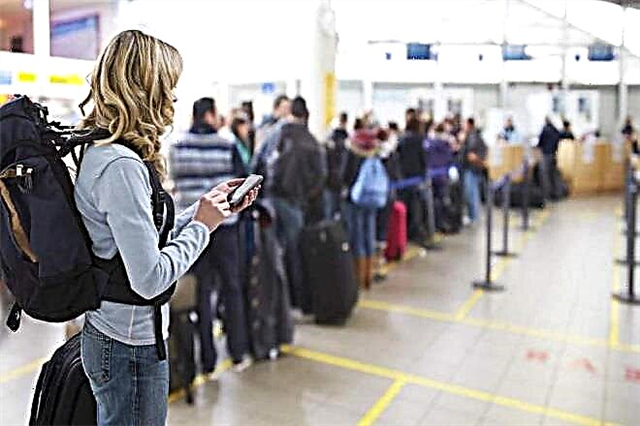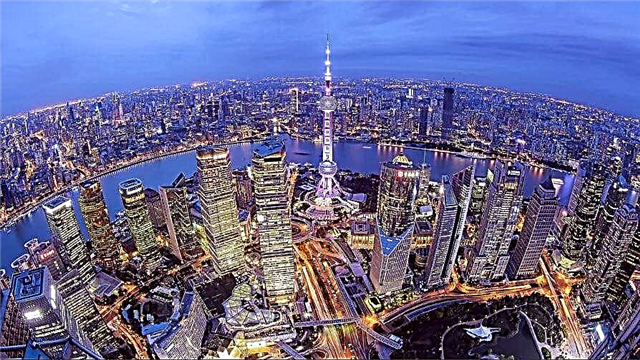Back in the 90s, immigration to Finland was not considered a priority at all - the total number of foreigners in the country in 1990 was only a little more than 20 thousand people. But much has changed since then: having survived a deep economic crisis, the country was able to become one of the economic leaders of the European Union. Foreigners also followed the rapid growth of GDP, most of whom are by no means refugees from poor African republics: 65% of migrants are from Western countries. Why is Finland so attractive and how to move there in 2021?

Immigration to Finland: advantages
Moving to live in Finland is a decisive step, especially given the geographical and cultural characteristics of this northern European country. But when you consider the advantages that Finnish immigration provides, any disadvantages no longer seem so insurmountable.
All this is confirmed by the dynamics of migration: every year the number of immigrants in Finland is increasing by 15-20 thousand people, reaching 373 thousand in 2021. Nothing strange, because life in the country gives a lot of advantages:
- being in the Schengen area allows permanent residents of Finland to move freely around Europe without visas;
- high level of income: the average salary in 2021 was 3.36 thousand euros;
- economic stability: GDP per capita exceeds $ 38 thousand (in the Russian Federation - $ 8.7 thousand);
- the opportunity to use public health care if you have a place of residence in Finland;
- the right to work in Finland and simplified employment in any other EU country;
- affordable education for both children and adults;
- territorial proximity to the Russian Federation.
These are just the main points - this northern country is ready to give immigrants much more.
Finnish immigration policy and conditions
The Finnish authorities are stimulating migration flows, so emigration from Russia to Finland seems to be natural. Local migration policy promotes immigration for many reasons: the aging of the Finnish population (56% of the country's population growth is the result of migration), the need for labor, the development of economic potential, and so on.
All these processes required the adoption of a new version of the Law on Foreigners (Ulkomaalaislaki 301/2004), which established new immigration rules - it became much easier to move to Finland for permanent residence.

In addition, local authorities create all the conditions for attracting foreigners. For immigrants it is provided:
- employment for seasonal and low-skill jobs without language skills;
- free language retraining;
- providing a personal employment consultant, completing additional training or recognition of existing qualifications;
- providing children with free preschool / school education;
- participation in entrepreneurship support programs.
Forms of legalization (residence permits)
Arriving in Finland from Russia, Ukraine or any other country, for a full-fledged legal residence exceeding the period of stay (90 days) on the basis of a visa, a foreigner must have a residence permit.
A residence permit is a permit for temporary or permanent residence, you need to get it even before entering the country, at the foreign embassy of Finland at home.
The first residence permit (Ensaimmäinen oleskelulup) is considered temporary and is issued for a period determined by the reason for the move.
For example, a student residence permit is issued for no more than 1 year, while for family reunification - up to 4 years.

If the residence permit expires, the foreigner has the right to apply for a permit to extend the residence permit (Uusi määräaikainen oleskelulupa), which is issued for 4 years.
After 4 years of uninterrupted residence, the law allows you to obtain a permanent residence permit (Pysyvä oleskelulupa), which is valid indefinitely. After 5 years of uninterrupted residence, the foreigner acquires the right to citizenship.
Grounds for obtaining a residence permit (directions of migration)
Chapter 4 of Law No. 301/2004 "On Foreigners" identifies a number of grounds on which a temporary residence permit can be obtained. Let us remind you that obtaining a residence permit is a prerequisite for temporary residence, and you must get it even before entering the country.

The reasons for obtaining a residence permit and, therefore, directions for immigration to Finland include:
- residence permit for students and researchers;
- residence permit for employment;
- residence permit for the purpose of doing business;
- residence permit for family reunification;
- residence permit for repatriates;
- granting asylum.
Let's consider the features of each of them in more detail.
Residence permit for study purposes
A residence permit for the purpose of studying in Finland is issued to students admitted to Finnish universities, as well as to inventors and researchers wishing to obtain an academic degree. Since Finnish education is of high quality and subsequently gives the right to stay in the country and get a job, a huge number of foreigners want to study at Finnish universities.
But those who go to study in Finland from outside the EU should remember: from 2021, tuition is paid for them. The minimum rate is 1.5 thousand euros per year.

For example, at the University of Helsinki, depending on the specialty, the cost of training will be from 13 to 18 thousand euros per year.
Popular specialties include:
- medicine and healthcare;
- engineering and technical specialties;
- economics and finance;
- agriculture and so on.
Finnish universities offer scholarships and study / research grants for doctoral students, researchers and gifted masters. The bulk of foreign students will have to support themselves on their own: for this, they must have at least 560 euros per month or 6.72 thousand euros per year on their account.
Residence permit for labor migration
For employment of a foreigner from outside the EU, he will need a special residence permit. Depending on the direction, a residence permit may be required for general types of work (which do not require special qualifications) or a residence permit for certain types of activities: holding managerial positions, scientific work, or for a specialist position, regardless of the profession.
In the case of seasonal work, a foreigner will also need a special residence permit. Any of them are issued by the migration service, but only after additional confirmation from the Bureau of Employment and Economic Development.
Other residence permits can also give the right to work, for example, a residence permit for students allows you to work up to 25 hours a week. Most of the vacancies available on the labor market offer a salary of 2 to 2.5 thousand euros.
The list of professions corresponding to this income level includes:
- cooks, waiters and catering workers;
- agricultural and forestry workers;
- cleaners, dishwashers, home helpers, governesses;
- warehouse workers, movers, taxi and public transport drivers;
- gardeners and so on.
Residence permit for entrepreneurs
If you decide to move from Kazakhstan on the basis of a business in Finland, you will need a special residence permit for entrepreneurs (oleskelulupa yrittäjille). A residence permit for business can be obtained by:
- startups;
- private entrepreneurs (toiminimiyritys);
- members of general or limited partnerships;
- members of cooperatives with unlimited liability;
- shareholders in managerial positions in LLCs or heads of companies with other forms of ownership.
To obtain a residence permit, a foreign investor can buy a ready-made company or found his own, even if it is a startup.
For this, a Finnish start-up entrepreneur must first submit an application and documents to Business Finland, which must give approval for the relevance and profitability of the new business.

Promising areas for business are:
- information Technology;
- Agriculture;
- catering and restaurant business;
- environmental solutions;
- food production;
- construction and so on.
Residence permit for family reasons
Section 37 of Law No. 301/2004 allows persons with family members in Finland to obtain a residence permit. To do this, they, as a rule, must justify the need for them to move to the country, as well as substantiate that they have the means to support a foreigner arriving in Finland.

Not all family members of Finns or foreigners legally residing in the country can obtain such a residence permit, but only theirs:
- Marital partners: spouses of Finns and foreigners, including those in same-sex marriages, as well as common-law spouses, if they have been married for at least 2 years or have a common child;
- parents and children: minor children of Finns or foreigners permanently residing in Finland, as well as parents and other guardians of minor children with Finnish citizenship or residence permit, if the children are not married and have not reached the age of 18;
- other relatives: any degree of kinship, if they are completely dependent on a family member residing in Finland. For example, a Finnish citizen can transport retired parents to the country for their health and financial dependence.
Residence permit for re-emigrants
If you have Finnish roots or if you prove a strong connection with the country, local legislation allows such persons to obtain a residence permit. This process is called repatriation - the return of compatriots and former emigrants to their homeland.
The person who has submitted such an application to the embassy or the migration service receives the status of a re-emigrant (paluumuuttaja). The obtaining of this status is most influenced by the degree of family ties of the applicant - neither work, nor study, nor any other grounds are required.
First of all, re-emigrants are those who previously had Finnish citizenship, but lost it for one reason or another and left Finland.
In addition to a residence permit, former Finns have the right to apply for a simplified procedure for obtaining citizenship - by notification of citizenship. The law does not establish any obligatory periods of residence in Finland for such persons. The main thing is that earlier citizenship was not lost through the fault of the person, for example, in the case of providing false information and revoking citizenship.
The second category is repatriates by origin: those who can get a residence permit if they are of Finnish origin. It is confirmed by the presence (including in the past) of citizenship by birth of at least one of his parents or grandparents. Such origin must be confirmed by a reliable certificate, for example, a birth certificate of close relatives and a certificate confirming the applicant's relationship with them.
The application is considered by the migration service or the embassy (in case of filing an application from the territory of another state) and must be submitted personally by the applicant - filing by another person on behalf is not allowed.
The term for consideration of the application is 5 months, the amount of the state fee payable is 470 euros. The application can be submitted if you have sufficient means of subsistence.
Together with the application, the applicant must submit:
- original valid passport with color copies of personal information pages;
- photo 35 x 45 mm;
- application for legal residence in the state in which the application is submitted;
- application form MP_1 (for those who are in Finland and applying for the first residence permit);
- the applicant's birth certificate;
- birth certificates of Finnish relatives;
- Finnish archival certificates or other certificates confirming the existence of citizenship in the past;
- name change certificate (if any).
This residence permit also gives an unlimited right to work, but it arises only after the migration services make a final decision. As a reminder, the expected processing time for a request is 5 months.
Obtaining asylum in Finland
As in any other country in the world, persons who have serious fears for their lives due to persecution or the threat of persecution on the basis of race, religion, ethnicity, linguistic or other grounds, have the right to apply for asylum in Finland. To do this, they must prove such a threat by submitting an application for asylum and documents confirming the grounds for this to the border, customs or police authorities.
It is important that the application must be submitted on the territory of Finland or at its border - there is no remote filing or filing through the embassies.

On the territory of the EU, it is possible to apply for refugee status only in the country to which the applicant came first. That is, if it is not Finland, the applicant will certainly be returned to the EU country he visited first - this is the main difficulty, since it is possible to get to Finland without a transit country either by air or from Russia.
During the consideration of the request, the applicant has the right to remain in the country, but during this period he cannot leave Finnish territory. If he has no funds, he can live in a reception center.
Conclusion
Summarizing the above, once again I would like to draw the attention of readers to a rather extensive list of reasons and directions of migration. It provides ample opportunities for migration for many foreigners, but they all have strict requirements that must be met. Each of the areas has its pros and cons, which should be taken into account by immigrants in any case.
| Grounds for residence permit | Advantages | disadvantages |
|---|---|---|
| University education, research | gives the right to employment; allows you to stay after training and get a residence permit for job search. | requires expensive tuition fees from 1.5 to 18 thousand euros per year; requires a means of living - at least 560 euros per month. |
| Employment | allows you to live in the country throughout the entire duration of the employment contract; allows you to apply for a high salary of 2 thousand euros. | there are several forms of residence permit depending on the type and form of employment; for immigration, you first need to find a job; requires agreement with the Employment Bureau. |
| Family circumstances | gives the right to employment; if the relative is a Finnish citizen, it is not required to prove the availability of means of living; allows you to move not only spouses and children, but also dependent relatives. | requires relatives in Finland; if the relative is a non-citizen, proof of income will be required. |
| Doing Business | gives the right to live even for startups; allows you to obtain a residence permit without obtaining a visa. | requires large investments; does not give the right to employment; requires proof of business profitability. |
| Repatriation | applies not only to former citizens, but also to their descendants; gives the right to free employment; allows you to obtain citizenship in a simplified manner. | requires proof of Finnish origin. |
| Asylum application | allows you to receive humanitarian protection; if necessary, housing is provided in the shelter; gives the right to employment. | difficulties with getting to Finland as the first EU country; it is impossible to return home. |











